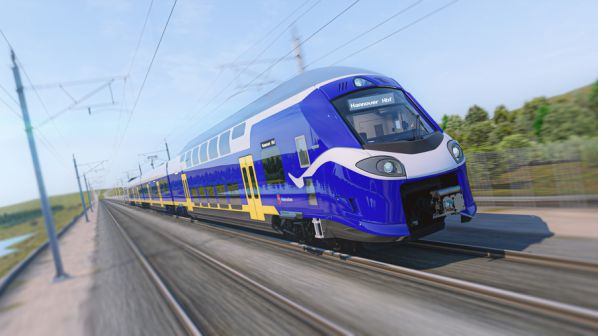THE Lower Saxony Transport Authority (LNVG), together with the Hannover Region and the city of Bremen, has launched a European wide tender for an operator for the Express Cross Bremen Lower Saxony network (EBN) from December 2024.
The contract includes the RE 1 Hannover - Oldenburg - Norddeich Mole/Wilhelmshaven, RE 8 Bremerhaven-Lehe - Hannover, and RE 9 Osnabrück - Bremerhaven-Lehe lines. The contract also includes “RE booster services” between Bremen or Nienburg and Hannover, which could increase the frequency of services to every half hour depending on available train paths. The contract will run for 13 years, with an option for a two-year extension.
The tender stipulates that the operator must increase the number of staff working on the routes and must also train personnel on an ongoing basis.
“We stipulate that in future there must be two customer service staff on every train,” says LNVG managing director, Mrs Carmen Schwabl. Passengers will also be able to reserve seats, which is unusual for regional services. “The network leads to important holiday destinations, so reservation is important to increase the attractiveness of the offer,” Schwabl says.
Lower Saxony is purchasing 34 part double-deck EMUs from Alstom for the network under a €760m contract, which will be serviced at a newly-built depot.
The service will include a direct connection between Wilhelmshaven and Hannover. The trains will split at Oldenburg, with one half travelling on the newly-electrified line to Wilhelmshaven while the other will continue to Norddeich Mole.
The contract will be awarded to the operator with the most economical bid which meets LNVG’s standards.
“It is always claimed that this is competition at the expense of the employees - but that is not true,” Schwabl says. “We demand that the new operator pays according to a collective agreement of the railway unions. An operator who doesn’t make employees an attractive offer won’t find people.”
The services are currently operated by DB Regio, but under the terms of the agreement staff will be entitled to transfer to the new operator if DB Regio does not win the new contract.
“The rising fuel prices of recent weeks have made it even clearer that regional rail transport is enormously important to ensure mobility even without a car,” says Lower Saxony minister for economic affairs, labour, transport and digitalisation, Dr Bernd Althusmann. “This is in addition to the climate protection aspects. With the new trains at the express interchange, we are making the change even more attractive.”

